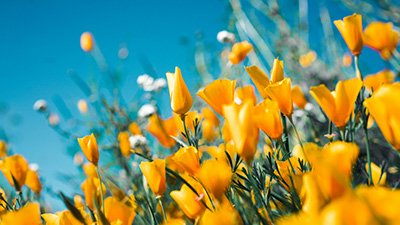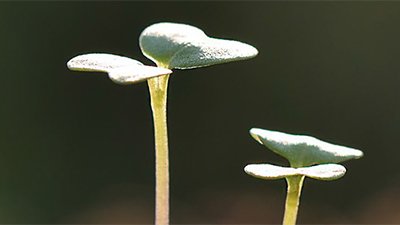Pitcher Plants Symbiosis
Creationists often respond to challenges that certain animals could not have been vegetarian before the Fall. Only rarely does this topic turn to carnivorous plants, but a new study of pitcher plants may provide support for creationists’ views.
News Source
Pitcher plants are perhaps the plant equivalent of a T. rex: the largest of all carnivorous plants, rumored to lure animals as large as rats into its pitcher-shaped, nectar-filled trap and devour them. The pitchers of Nepenthes rajah, thought to be the largest of all pitcher plants, can have a capacity of more than half a gallon (2 L).
The reality may be less sensational, however. On Borneo, the giant montane pitcher plant has a pitcher the same size as the local tree shrew. This presumably has added to the lore of tree shrew- and rat-swallowing pitchers, but these tales did not sit right with Monash University–Sunway carnivorous plant expert Charles Clarke. “This species has always been famous for its ability to trap rodents, but I’ve been looking at the pitchers of this species on and off since 1987, and I’ve never seen a trapped rat inside,” he said.
Clarke along with Monash’s Lijin Chin and Royal Roads University’s Jonathan Moran studied the behavior of tree shrews and noticed an odd interaction between the tree shrews and the pitcher plants: the animals would often defecate into the pitchers. “All of a sudden we realised that there may be some relationship between big pitchers and tree shrews,” Clarke explained.
By studying pitchers’ geometry, the team discovered that the tree shrews’ body length perfectly matches the distance from the nectar-bearing pitcher “lids” and the pitchers themselves. To reach the nectar, the tree shrews climb onto the pitchers in a certain way, leaving its rear poised directly over the pitcher opening. Defecation is thought to be a way to mark territory. The same holds for other pitcher plant species whose nectar is gathered by tree shrews.
Pitcher plants were thought to consume animals to digest crucial nutrients they could not otherwise obtain. However, the feces of the tree shrew (which enjoys the plant’s nectar) supply much or most of these nutrients to the pitcher plant. “The findings should radically alter how we look at these plants,” Clarke said. Research suggests other pitcher plants have similar relationships with small mammals (including even bats).
If there was no death before sin (as the Bible teaches), and if God’s creation was perfect before Adam and Eve sinned (in Genesis 3), it follows that death could not have been present in pre-Fall earth. But how could animals known to eat meat today have survived? Creationists have a variety of nonexclusive explanations; further, creationists continue to discuss the extent of biological life-forms that are considered by God’s Word to have life (and that, therefore, could not have “died” before the Fall). Thus—odd as it may sound—Clarke’s team’s research may give us a better understanding of the original, perfect purpose of pitchers.
Further Reading
- How Did Defense/Attack Structures Come About?
- Why Does God’s Creation Include Death and Suffering?
- ‘Life’ According to the Bible, and the Scientific Evidence
- Get Answers: Suffering, Genesis
For More Information: Get Answers
Remember, if you see a news story that might merit some attention, let us know about it! (Note: if the story originates from the Associated Press, FOX News, MSNBC, the New York Times, or another major national media outlet, we will most likely have already heard about it.) And thanks to all of our readers who have submitted great news tips to us. If you didn’t catch all the latest News to Know, why not take a look to see what you’ve missed?
(Please note that links will take you directly to the source. Answers in Genesis is not responsible for content on the websites to which we refer. For more information, please see our Privacy Policy.)
Recommended Resources

Answers in Genesis is an apologetics ministry, dedicated to helping Christians defend their faith and proclaim the good news of Jesus Christ.
- Customer Service 800.778.3390
- © 2024 Answers in Genesis








